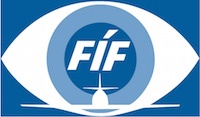Co-Operation instead of Competition
As a starting point of close cooperation, ATS staff representative bodies of the three Benelux States, Germany and the Eurocontrol Maastricht UAC met to discuss issues concerning the implementation of the Single European Sky (SES) initiative in general and the possible creation of a common Functional Airspace Block (FAB) by the Air Navigation Service Providers (ANSPs) of the four States.
These talks not only clarified that there are no competitive tendencies between Air Traffic Controllers of the concerned countries but that, on the contrary, the participating professional associations and trade unions share common visions as to how European Air Traffic Services should evolve to meet the targets of SES and hence the requirements of our customers, above all the airlines and their passengers.
As part of these visions, ATS staff believe in the necessity of a common approach based on cooperation, including professional associations and trade unions, and the ANSPs’ managements to develop solutions towards a seamless European ATM system that is mainly driven by safety rather than economic factors. Indeed, fierce competition and privatization as envisaged by some ANSPs aim at the consolidation of ATM and will automatically focus on cost effectiveness and competitiveness taking airspace as the source of revenue. Without proper regulation and oversight, this model could leave the whole ATM industry with a fixation on cost that will drive it away from its prime objective: safety. This process will undoubtedly promote the profits of those few surviving ANSPs, but will neither motivate the workforce nor ensure the well-being and safety of our customers. Safety must never lose the top priority in Air Traffic Services that it enjoys when governments are directly responsible for it. It is therefore that the involved staff representative bodies strongly voice their concerns and support a co-operative, evolutionary approach instead. Such an approach, based on harmonizing operational concepts, working practices and conditions, and re-aligning air routes and procedures along users’ needs throughout a common, larger block of airspace (to mention but a few), is likely to yield better and longer-lasting benefits much earlier than any competitive approach as advocated by the more aggressive ANSPs.
The signatories of this statement want to send a clear message to all those involved in the implementation of SES and FABs that anything less than the aforementioned will not be accepted. Moreover, they want to make sure that sufficient professional input is given in such a way that the users’ needs can be met by the future European ATM system.
Klaus Berchtold-Nicholls President GdF
Patrik Peters President EGATS
Rudi Knops President BGATC
Stefan van der Loos President Dutch Guild
Frank Klaess President ATC-Luxembourg
